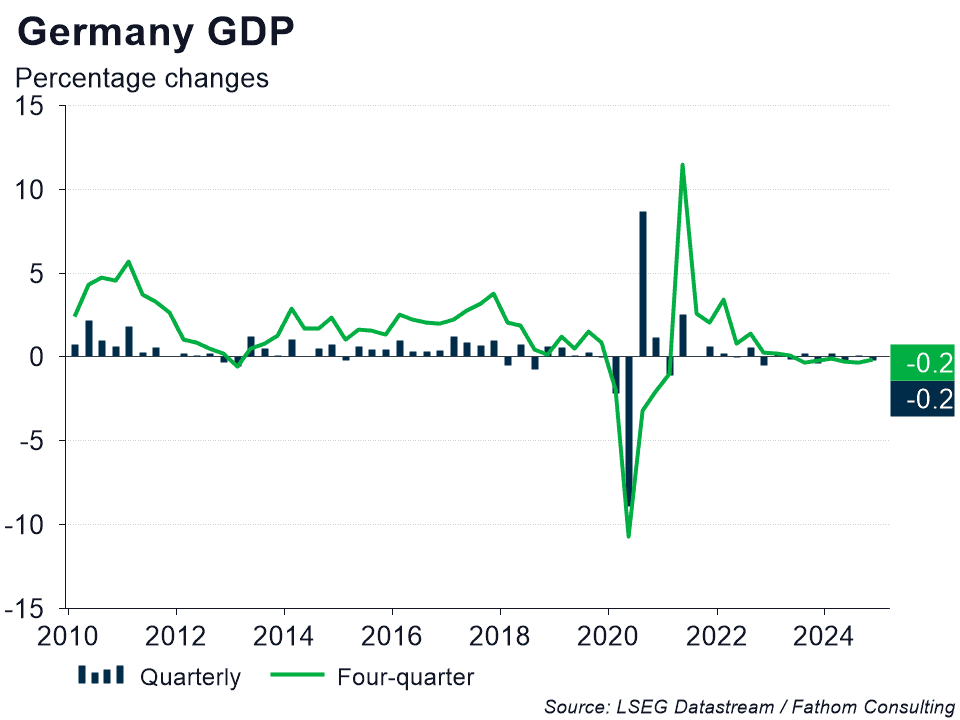It is several decades since Germany was last labelled the ‘sick man of Europe’ but economic malaise has once again taken hold in Europe’s largest economy. Two consecutive years of negative GDP growth have provided the backdrop to Germany’s election on Sunday, 23 February. The rare snap poll was triggered after the coalition government splintered amid a disagreement over the economy. The incumbent Chancellor, Olaf Scholz, of the centre-left Social Democratic Party (SDP), claimed that his options to reverse the economic decline were limited because of the ‘debt brake’ that Angela Merkel inserted into the German constitution in 2009, limiting the annual deficit of the federal government to 0.35% of GDP. But his rival Friedrich Merz, of the conservative Christian Democratic Union and Christian Social Union (CDU/CSU), said that the root of Germany’s problems lay in its export-based growth model.
